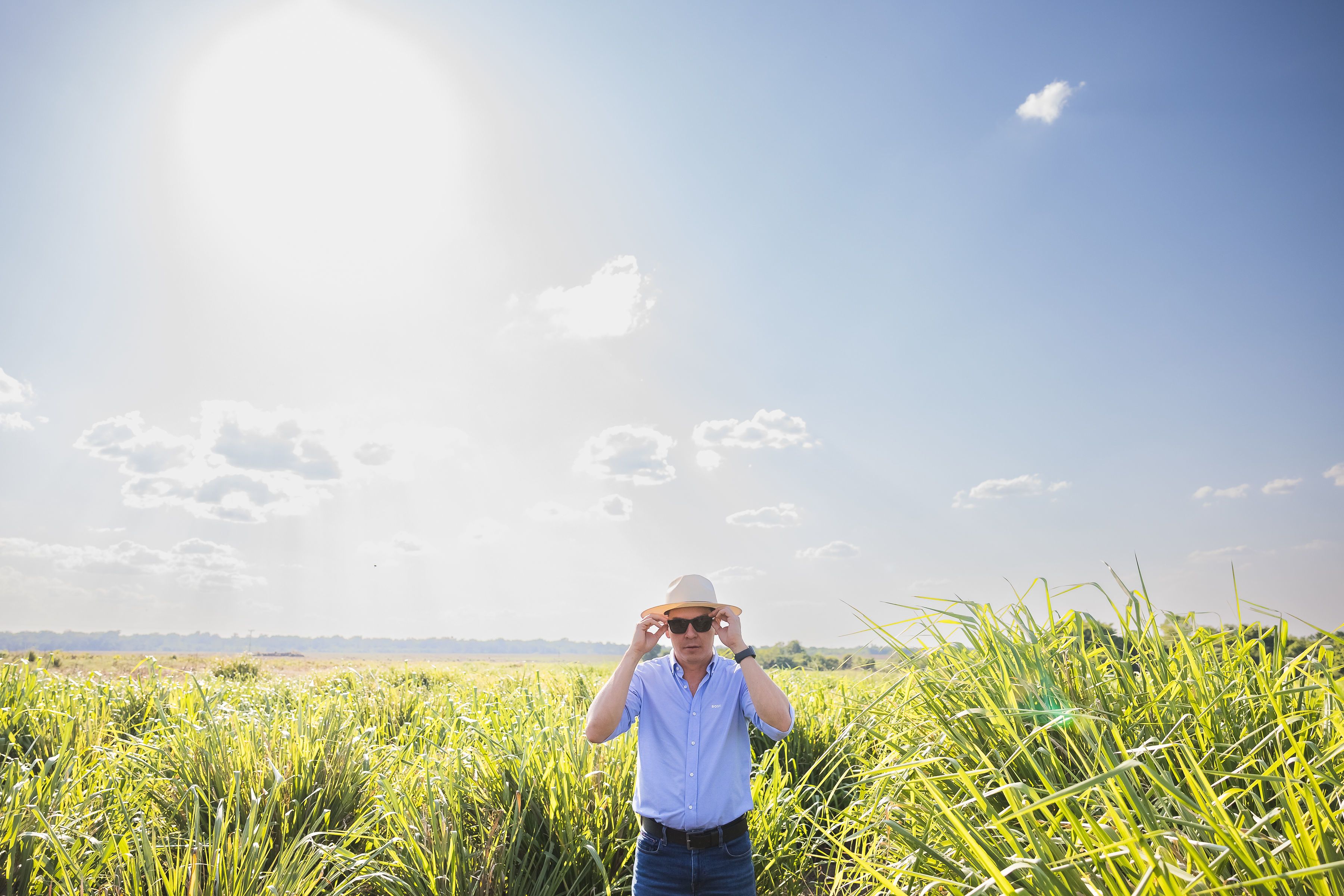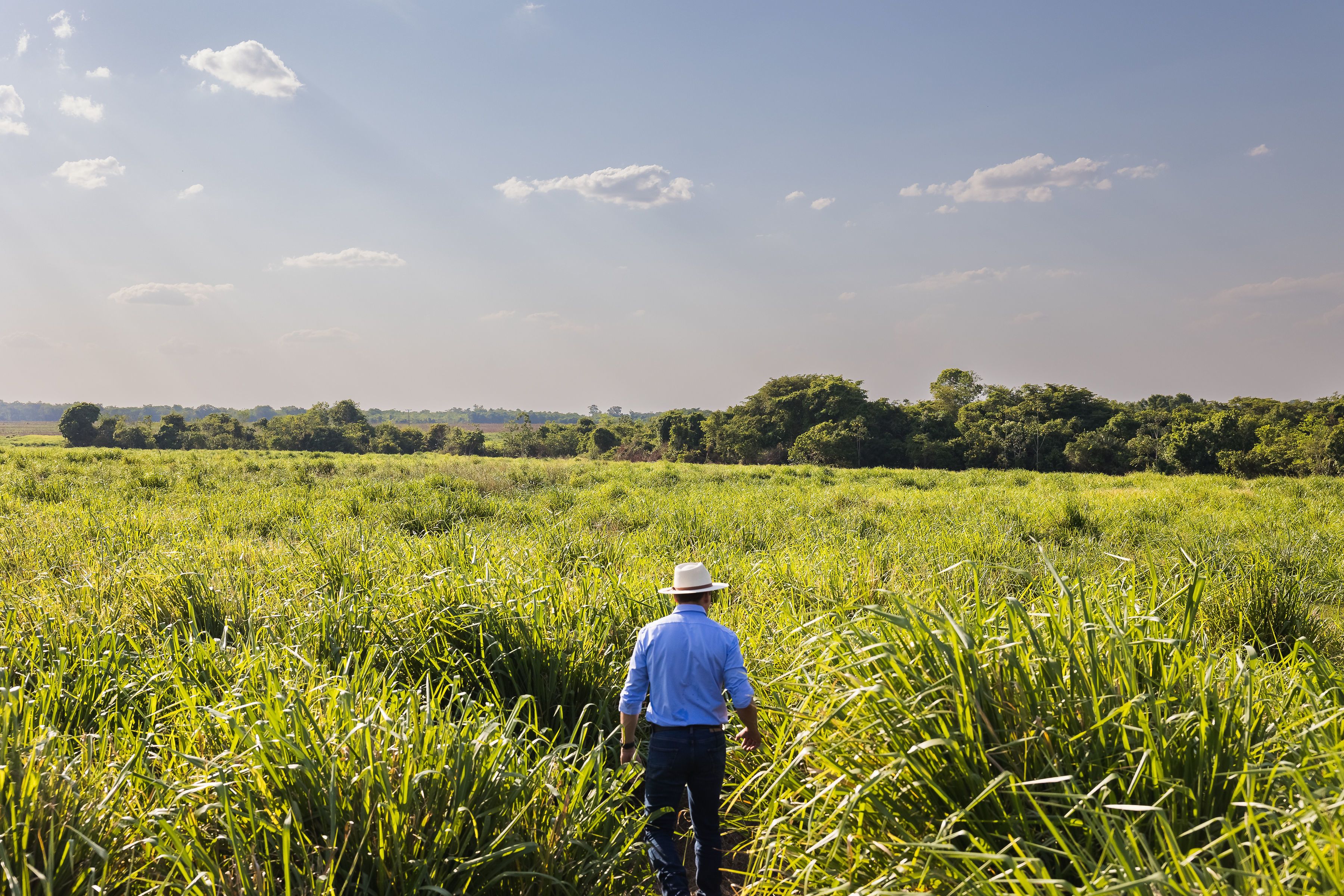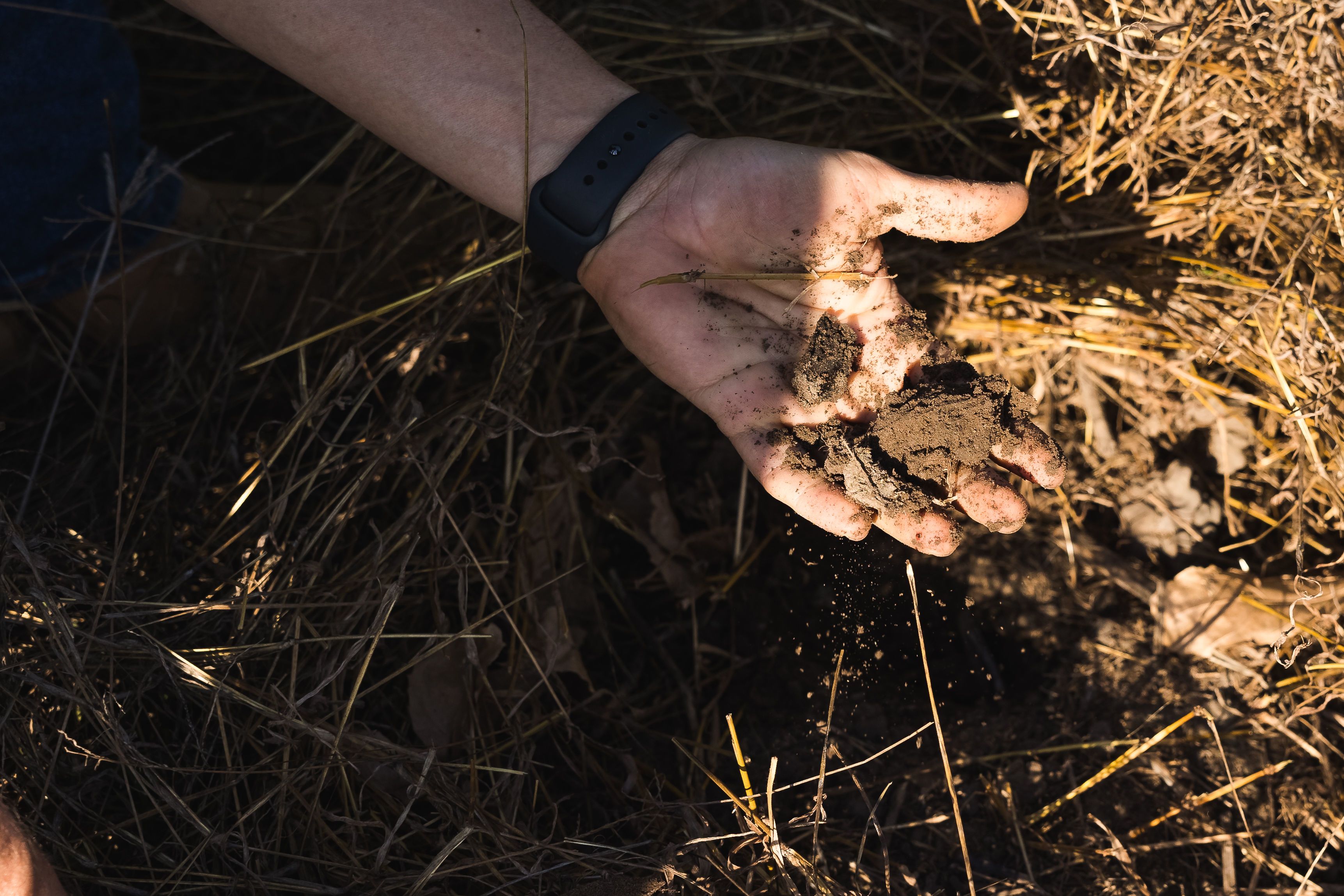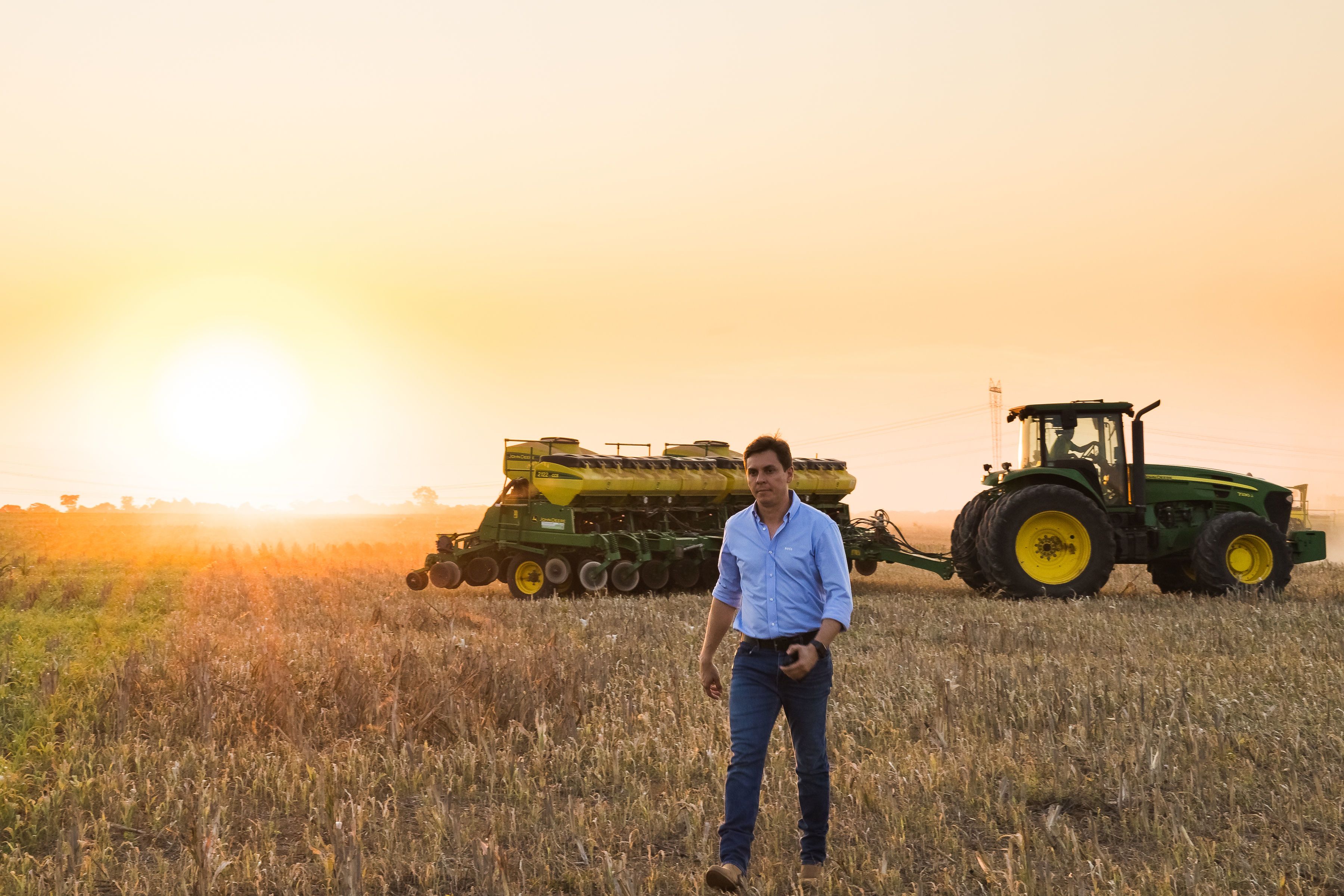Keeping the soil cool in a hot, tropical climate
How Regenerative Agriculture improves cultivation at Grupo Portilho´ farm in Brazil

When the average annual temperature is 35 degrees Celsius all year round, crop seeds can dry out and die in the baking soil before they germinate. Even established plants can struggle as their roots simmer in the unforgiving glare of the sun.
This is a daunting yet familiar reality for Lucival Portilho. He farms an integrated system of livestock and crops on 9,000 hectares (more than 22,000 acres) in Gurupi, Tocantins, Brazil. His farm, Grupo Portilho´ Farm, is located in the center of the country where the tropical temperatures continue to increase with extremes well above the average, posing severe challenges to productivity, even with the region’s abundance of rich, fertile soils.
In recent years, Lucival has found answers to the challenge of raising crops amid rising temperatures by implementing regenerative agriculture practices.
“We keep our soil covered, which has many benefits; from the richness of microorganisms within the soil to a milder temperature. And with that, we have better stability and germination conditions for the cultivated plants and a series of other benefits from the milder temperatures, which enable a better development of the crops.”
The soil is covered, and therefore kept cooler, by ensuring crops are in the soil year round. This is achieved by planting a different crop immediately after harvest or planting two or even several crops at the same time in the same place – also known as ‘double cropping’. This green cover helps Lucival and other farmers who use this practice ensure their soil is shaded so crop roots can dig deeper into it and increase their access to moisture.
Global food supply

In Brazil, farmers are no strangers to producing important crops like grains, cotton, sugar cane, coffee and vegetables in a challenging climate. Their success has ensured Brazil has become a global leader in producing both beef and soybeans. Their farms are now a vital source of beef and soybeans in the world food supply.
With climate change, and the important role Brazil’s farmers play in our food supply, comes pressure. This is one of the reasons why they are also leaders in adopting sustainable farming practices, such as those used in regenerative agriculture.
Regenerative agriculture is a food production system that nurtures and restores soil health. It protects the climate, water resources and biodiversity, and enhances farms’ productivity and profitability.
Lucival has decided to adopt regenerative agriculture with one eye on the crops in his field today and another on the climate of tomorrow.
“We integrate growing crops and livestock with the aim of reaching a highly efficient model of livestock farming. Today, in this extensive model, we have 500 cows across 500 hectares. By adopting regenerative agriculture practices we hope to have the same number of animals in one fifth of the area we use today." Lucival Portilho
One of the principles of regenerative agriculture is minimal or zero till and soil disturbance. This ensures the carbon that is absorbed and retained in the soil, known as carbon sequestration, is not released into the atmosphere by soil disturbance. Carbon is a greenhouse gas that, when released into the atmosphere, is leading to rising temperatures around the world.
For Lucival, the continued productivity of his land depends upon being able to protect his soil’s health and prevent extremes of weather.
Land under threat

Brazil is blessed with large expanses of land.
It is a rich tapestry of tropical grasslands, trees and watersheds that represents a rich abundance of plant biodiversity and wildlife thriving across two million square kilometers of prime Brazilian countryside, pasture and farmland.
Lucival is part of a program, known as ‘REVERTE®’, which aims to reclaim degraded pastureland in the Cerrado.
“REVERTE® is very practical for the producer, it’s a very simple program. It includes a set of criteria that are not too bureaucratic, and that’s what makes it practical for us, because a lot of the tools or projects that we see on the market similar in scale to REVERTE® are sometimes not practical or practical enough to be used in the field,” says Lucival.
Working alongside conservationists, agriculturalists and policymakers since 2020, Syngenta Group and its long-term partners have been aiming to strike a balance with REVERTE®. That balance is between economic benefits by ensuring important agriculture is restarted on the estimated 11 million hectares of degraded pastureland that could be reclaimed while protecting habitats through non-expansion.
It is early days for this ambitious project. However, Lucival says, “The benefits REVERTE® has brought to the group and to our production has translated into results. We can now have three incomes from the same area where we used to have a single annual income, and this has facilitated our operation; we require a smaller area and manage to deliver better results.”
Grupo Portilho´ Farm

On Lucival’s farm, he is convinced that regenerative agriculture will help him produce healthy crops and livestock within an integrated system. It also allows him to practice precision agriculture.
He says, “Precision agriculture fits very well into today’s model of regenerative agriculture because we can apply inputs in precise quantities multiple times which, in the past, would have been applied as one fixed quantity across the total area just once.”
Thinking of the value of soil health, he sees this as another strategy for improving the soil that produces his crops. “We are able to give the soil exactly what it needs; the right quantity in exactly the right place, and this allows us to have financial savings and business sustainability savings. And we are also saving the soil quality because we are limiting the chemicals and not making the soil more fertile than is needed.”
For Lucival, there is no doubt that regenerative agriculture will enable Brazil, and his own farm, to meet the needs of food production and help prevent further temperature rises in the long term.


